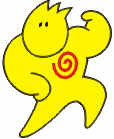"All things excellent are as difficult as they are rare." ~ Benedict De Spinoza
Called "the noblest and most lovable" by English philosopher Bertrand Russell, writer Benedict (Baruch) de Spinoza (1632-1677) was born on this day in Amsterdam.
"Desire is the very essence of man," he once said.
An Orthodox Jew of Portuguese-Jewish decent, he was excommunicated in 1656 for publicly questioning the Talmud.
"The wise man does not meditate on death," he observed, "but on how to live."
Influenced by the philosophy of Hobbes and Descartes, Spinoza believed in the power of knowledge, that thought and matter are the basic categories of reality. His arguments were made like geometry proofs.
"Do not weep; do not wax indignant. Understand," he said.
His major work, Ethics was published after his death and written in geometrical order, modeled after Euclid's Elements. His rational careful examination of ideas influenced the works of both Kant and Freud. "We feel and know that we are eternal," said the 17th century philosopher.
For Spinoza, who made his living grinding lenses for glasses and telescopes, God was "the creative, absolutely perfect power of the Universe." This philosophy of Pantheism saw all of Nature as being one and everything in the Universe as being part of God.
"Happiness, pure happiness, is a virtue in itself," he said.
 Strive for the rare gift of excellence.
Strive for the rare gift of excellence.
